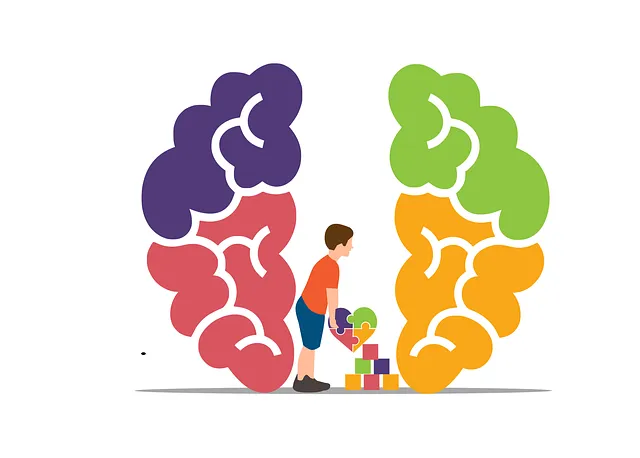The Kaiser Permanente behavioral health center Longmont offers tailored Mental Wellness Coaching Programs to address trauma's impact on individuals' mental and emotional well-being. These programs, sensitive to cultural differences, empower people to process emotions, build resilience, and regain control. Through specialized therapy, education, and support services, the center fosters healing, promotes healthy coping mechanisms, enhances mental health, and improves quality of life for trauma survivors.
Trauma is a significant public health concern, affecting individuals across diverse demographics. This article explores comprehensive trauma support services provision, focusing on strategies and resources available at the Kaiser Permanente Behavioral Health Center in Longmont. We delve into understanding trauma’s impact, identifying signs in individuals, effective support approaches, and building robust networks of care for survivors. By examining these aspects, we aim to enhance awareness and access to quality trauma-informed care, including services offered by Kaiser Permanente Behavioral Health Center Longmont.
- Understanding Trauma and Its Impact
- Kaiser Permanente Behavioral Health Center Longmont: An Overview
- Identifying Trauma Signs in Individuals
- Effective Trauma Support Services Strategies
- Building a Network of Care for Trauma Survivors
Understanding Trauma and Its Impact

Trauma is a profound and complex experience that can have lasting effects on an individual’s mental and emotional well-being. It often arises from distressing events, such as accidents, violence, or prolonged exposure to harsh environments. The impact of trauma can manifest in various ways, affecting one’s ability to cope with daily life, maintain relationships, and manage stress. At the Kaiser Permanente behavioral health center Longmont, we recognize that each person’s journey with trauma is unique, and our goal is to provide tailored support.
Understanding trauma involves acknowledging its far-reaching consequences on mental wellness. The development of Mental Wellness Coaching Programs has been a game-changer in helping individuals navigate their traumatic experiences. These programs, designed with Cultural Sensitivity in Mental Healthcare Practice, empower people to process their emotions, build resilience, and regain a sense of control. Through specialized therapy, education, and support services, the Kaiser Permanente behavioral health center Longmont aims to foster healing and promote healthy coping mechanisms for those affected by trauma, ultimately enhancing their overall mental health and quality of life.
Kaiser Permanente Behavioral Health Center Longmont: An Overview

The Kaiser Permanente Behavioral Health Center Longmont stands as a beacon of hope for individuals navigating trauma and mental health challenges. This center is dedicated to providing comprehensive care, integrating clinical services with innovative therapeutic approaches. By offering a range of programs tailored to diverse needs, they foster an environment conducive to healing. The facility’s expertise lies in its ability to deliver evidence-based treatments, including therapy options that promote coping skills development, a vital aspect of trauma support.
In addition to direct care, the center actively engages in Mental Health Policy Analysis and Advocacy, ensuring systemic improvements. They also design and implement Mental Health Education Programs, aiming to raise awareness and reduce stigma. These multifaceted initiatives reflect a holistic approach, recognizing that effective trauma support involves both individual therapy and community education.
Identifying Trauma Signs in Individuals

Identifying trauma signs is a vital step in ensuring individuals receive the necessary support, especially those frequenting Kaiser Permanente behavioral health centers like the one in Longmont. Traumatic experiences can leave lasting impacts on mental and emotional well-being, manifesting as subtle or overt signals. Behaviors such as avoidance of reminders related to the event, heightened arousal, irritability, and negative thoughts or beliefs about oneself or the world are common indicators of trauma. These signs may be present in various forms, from flashbacks and nightmares to social withdrawal and substance abuse.
Professionals at Kaiser Permanente behavioral health centers play a crucial role in recognizing these signs through empathetic listening and comprehensive assessments. By fostering an environment of safety and trust, individuals feel more comfortable opening up about their experiences. Utilizing evidence-based practices and incorporating Mind Over Matter principles, the center offers effective interventions to support depression prevention and promote positive thinking. This holistic approach ensures that clients not only heal from trauma but also develop adaptive coping mechanisms to thrive in their daily lives.
Effective Trauma Support Services Strategies

Effective Trauma support services require a multifaceted approach that addresses the complex nature of traumatic experiences. One successful strategy involves integrating mental health education programs designed to enhance resilience and coping mechanisms among individuals who have experienced trauma. The Kaiser Permanente behavioral health center in Longmont, for instance, has implemented comprehensive programs that combine therapy sessions with compassion cultivation practices, empowering individuals to process their trauma in safe and supportive environments.
Additionally, fostering a culture of mental wellness is essential for long-term recovery. This can be achieved through community outreach initiatives, peer support groups, and accessible resources that promote early intervention and continuous care. By combining these strategies, such as those highlighted by the Kaiser Permanente behavioral health center, with tailored programs like Mental Wellness campaigns and Compassion Cultivation Practices, communities can effectively navigate the challenges of trauma support services and create a more resilient and compassionate society.
Building a Network of Care for Trauma Survivors

Building a supportive network is essential for trauma survivors’ long-term healing and recovery. The Kaiser Permanente behavioral health center in Longmont plays a pivotal role in this process by connecting individuals with specialized care and fostering a sense of community. This network extends beyond traditional therapy settings, incorporating various support systems tailored to the unique needs of each survivor. By encouraging peer connections and providing accessible resources, the center aims to empower individuals to navigate their healing journey effectively.
The creation of such a network emphasizes the importance of holistic care, addressing not only the immediate trauma response but also long-lasting mental health concerns. This includes promoting Self-Care Routine Development for Better Mental Health, as well as engaging in Mental Illness Stigma Reduction Efforts to create an inclusive environment. Additionally, by offering education and prevention strategies, the center contributes to Depression Prevention initiatives, ensuring survivors have the tools to maintain their emotional well-being.
Trauma support services are vital for healing and recovery, and the Kaiser Permanente Behavioral Health Center Longmont stands as a beacon of hope, offering specialized care tailored to survivors’ needs. By understanding trauma’s profound impact and implementing effective strategies, such as identifying signs and building comprehensive networks, we can ensure that individuals receive the necessary assistance. This holistic approach, inspired by best practices and centered around the survivor, paves the way for a more compassionate and resilient community.






